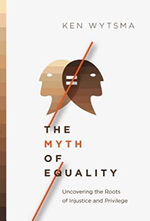Reviewed by Vicki Foreman
 The vision for BelPres is to help each one of us become disciples, a people committed to becoming more and more like Christ where we live, work, play, and learn. This book has much to say about the simple obedience as disciples of Jesus to both be just and to "do" justice. In Matthew 25, Jesus famously puts it like this: "whatever you did for one of the least of these, you did for me, and whatever you didn't do for one of the least of these, you didn't do for me."
The vision for BelPres is to help each one of us become disciples, a people committed to becoming more and more like Christ where we live, work, play, and learn. This book has much to say about the simple obedience as disciples of Jesus to both be just and to "do" justice. In Matthew 25, Jesus famously puts it like this: "whatever you did for one of the least of these, you did for me, and whatever you didn't do for one of the least of these, you didn't do for me."
The author writes from an evangelical point of view specifically to an evangelical audience. The book has two main points: privilege, and responsibility regarding race. He addresses difficult issues such as "white privilege" from a Biblical perspective, not a political perspective. The reader is invited to consider hard truths from a gospel perspective; truths that may run counter to our cultural beliefs.
The book is divided into three compelling sections: The Story of Race, Equality and the Kingdom of God, and The Challenge of Privilege. This book is not a difficult read. There are many anecdotes and quotes from diverse sources to illuminate challenging content and the reader is invited to consider both one's background and the story of people with very different lived experiences.
One anecdote sticks with me. The author was being queried about white privilege. His response was not that white privilege means that white people don't work hard, or suffer, or experience hardship. It is that those life experiences are not based on the color of our skin. Consider this, suggests the author, if any of us are found driving alone on a rural road at 2 a.m. in Mississippi and are pulled over by a police officer, would we rather be white or black? The answer to that question reflects the meaning of "privilege".
My copy of the book is full of yellow highlighting, so many powerful quotes to share. This is from the last paragraph of the book: "The choice is ours. Will we choose to pursue justice as those who have been given the ministry of reconciliation? Will we develop a prophetic imagination? In short, will we choose Christ and the cost of discipleship or modern American versions of Christianity that may have been shaped by us and for us?"
One "takeaway" from this book is to very intentionally look for places in my life where my privilege can be used for good for my brothers and sisters in Christ who do not look like me. As the epigraph of Chapter 11 states, "If we have no peace, it is because we have forgotten that we belong to each other." Mother Theresa
